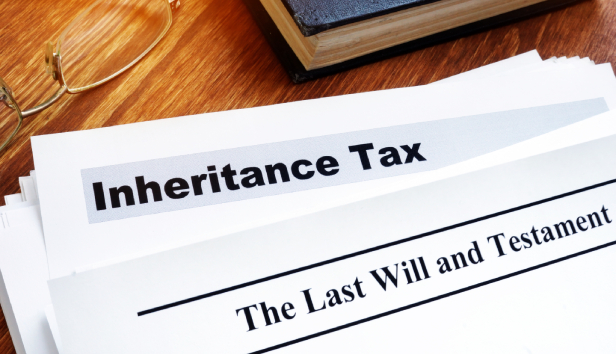
This article is for general guidance only and is not financial or professional advice. Any links are for your own information, and do not constitute any form of recommendation by Saga. You should not solely rely on this information to make any decisions, and consider seeking independent professional advice. All figures and information in this article are correct at the time of publishing, but laws, entitlements, tax treatments and allowances may change in the future.
A cherished holiday home often carries decades of special memories, from summer escapes to family festive breaks.
About 809,000 residential properties in England are second homes, according to the latest English Housing Survey. Those aged 55 to 64 are most likely to have a second home, with the desire for a holiday home the most common reason for having one.
If you’re over 50 and own a holiday home – or are thinking of buying one – the property can be a great asset for you and your family. But it’s important to plan how to pass on the property when you pass away.
Angelo Chirulli, tax partner at Gunnercooke LLP, says passing down a holiday home can be a wonderful legacy, but it is essential to sidestep potential tax pitfalls to protect your heirs.
“Including the holiday home in your will is crucial for clarity, ensuring it goes to the intended beneficiaries and reducing family disputes,” he adds.
Writing a will is crucial to ensure your assets and property are passed on according to your wishes when you die. Having a will in place is even more important in the case of second marriages, blended families, separated partners or cohabiting couples.
In any of these situations, dying intestate (without a will) can mean your assets going to unintended recipients. Even in a straightforward family set-up, including your holiday home in your will can reduce the likelihood of disputes among your beneficiaries.
If you’re married or in a civil partnership, the most common scenario is that a holiday home would be left to the surviving spouse.
Paul Baker, solicitor at Slater Heelis, says that if the property is jointly owned between spouses, the property can be transferred to the surviving spouse on the first death, usually without any immediate inheritance tax (IHT) bill.
The fact that spouses can transfer nil-rate bands between them means that on the second death, you can give away up to £650,000 worth of assets tax-free.
“Depending upon the value of your estate as a whole, transferring the property to the surviving spouse by will on the first death, then on to the children on the second death, could result in an IHT saving,” says Baker.
If you’re single or own the property alone, you might include it as a separate specific legacy in your will or ask for it to be sold with the proceeds forming part of your estate.
“If the holiday home is included as a separate specific legacy (for example, ‘My property in Devon to my granddaughter’), the will should also stipulate whether it is intended that this gift will be subject to IHT (the person receiving the gift must pay the tax) or free of IHT (the tax is paid is paid from the residuary estate),” adds Simrun Garcha, a partner at commercial law firm Laytons ETL.
Be aware that if you are gifting a holiday home, or a share in one, to somebody who does not already own a property, this is likely to prevent them from qualifying for the first time buyer’s allowance for stamp duty.
Selling the property after your death could also have capital gains tax (CGT) implications for your beneficiaries. If the holiday home increased in value between the date of your death and any subsequent sale, the difference could be subject to 18% or 24% tax, depending on your tax bracket.
Gifting your holiday home while you’re still alive can allow your family to enjoy the property straight away, while freeing you of maintenance and other property responsibilities as you age.
If structured properly, the transfer of ownership can also help reduce the value of your estate for IHT purposes, particularly if you live for seven years after making the gift. But you will need to avoid falling foul of the ‘gift with reservation of benefit’ rules and also be aware of any CGT liabilities.
If you reserve a benefit in the property, for example by staying in it for free after the gift has been made, HMRC will view it as if you haven’t made a gift. The whole value of the gift will remain within your estate and could therefore be subject to IHT.
One way of avoiding this might be to pay full market rent for any use you later make of it. However, this would have an income tax consequence for the children receiving the income, potentially complicating things further.
Hester Mills, partner at law firm Knights, says: “It can be possible to defer the CGT charge on a gift of a holiday home by passing it into specific forms of trust. Trusts can have IHT benefits for the beneficiaries, meaning they can be a useful estate planning tool.”

If you sell your holiday home at a price below market value to a family member, there are legal and tax implications to consider. First, the difference between its sale price and market value will be seen as a ‘gift’ under IHT rules.
Second, if you sell a second home to your children for less than its current market value, HMRC will calculate your CGT bill based on its market value rather than the reduced sale price.
Passing on your holiday home can be complicated if the property is overseas. You might find the property is subject to local IHT laws or forced heirship rules of the country it’s situated in – so it’s best to take professional advice in both countries.
Richard Marshall, legal director at Hill Dickinson, says that while an English will may say it applies to worldwide assets on death, a conflict of laws could affect how the property is passed on.
“Having a separate will in that jurisdiction can therefore be helpful, as it should ensure your wishes are followed in a way that is compliant with the local laws,” he adds.
The biggest mistake that families with holiday homes make in the estate planning process is not taking professional legal or tax planning advice. Doing so can help families fully consider the options outlined above, and several other possibilities too.
For example, some holiday homes that are also used as holiday lets might benefit from business property relief, which may reduce IHT liabilities. As well as trusts, limited liability partnerships (LLPs), or family investment companies (FICs) can be useful structures for managing tax obligations.
Whatever you decide, discussing your plans with your family and professionals is essential to avoid any surprises – emotional, financial, or otherwise – after you’ve gone.





.jpg?la=en&h=476&w=1440&hash=837FB8339853DB5FFD43C9EE0EE78EDB)
Discover why it's important to plan for your care costs, how to do it, and who picks up the bill.


.jpg?la=en&h=354&w=616&hash=DF845FE6DE9798B89724CB777DB917B3)
